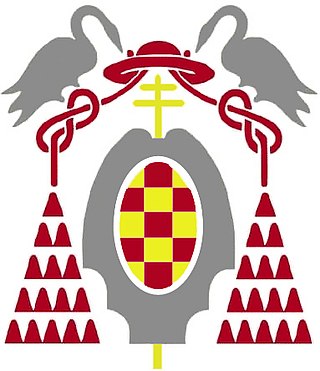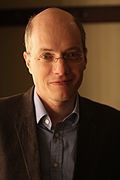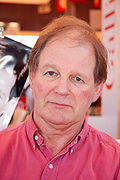
The University of Paris, known metonymically as the Sorbonne, was the leading university in Paris, France, from 1150 to 1970, except for 1793–1806 during the French Revolution. Emerging around 1150 as a corporation associated with the cathedral school of Paris, it was considered the second-oldest university in Europe. Officially chartered in 1200 by King Philip II and recognised in 1215 by Pope Innocent III, it was nicknamed after its theological College of Sorbonne, founded by Robert de Sorbon and chartered by King Louis IX around 1257.

The University of Alcalá is a public university located in Alcalá de Henares, a city 35 km northeast of Madrid in Spain and also the third-largest city of the region. It was founded in 1293 as a Studium Generale for the public, and was refounded in 1977. The University of Alcalá is especially renowned in the Spanish-speaking world for its annual presentation of the highly prestigious Cervantes Prize. The university currently enrolls 28,336 students, 17,252 of whom are studying for undergraduate degrees, who are taught by a teaching staff of 2,608 professors, lecturers and researchers belonging to 24 departments. The administrative tasks are carried out by the university's Administration and Services, comprising approximately 800 people.
A faculty is a division within a university or college comprising one subject area or a group of related subject areas, possibly also delimited by level. In North America, academic divisions are sometimes titled colleges, schools, or departments, with universities occasionally using a mixture of terminology, e.g., Harvard University has a Faculty of Arts and Sciences and a Law School.
Steven Kevin Connor, FBA is a British literary scholar. Since 2012, he has been the Grace 2 Professor of English in the University of Cambridge and a Fellow of Peterhouse, Cambridge. He was formerly the academic director of the London Consortium and professor of modern literature and theory at Birkbeck, University of London.
The University of Chicago Divinity School is a graduate institution at the University of Chicago dedicated to the training of academics and clergy across religious boundaries. Formed under Baptist auspices, the school today is without any sectarian affiliation.
Eric Sundquist is an American scholar of the literature and culture of the United States. Sundquist earned his B.A. from the University of Kansas (1974) and his Ph.D. from Johns Hopkins University (1978). Sundquist is the Andrew W. Mellon Professor of the Humanities Emeritus and former chair of the English Department at Johns Hopkins. He is a former member of the UCLA Department of English, and was Dean of the College of Arts and Sciences at Northwestern University.
The Faculty of Arts and Humanities is one of the 11 constituent faculties of University College London (UCL). The current Executive Dean is Professor Stella Bruzzi, FBA.
The Chinese University of Hong Kong Faculty of Arts is the arts faculty of the Chinese University of Hong Kong.
The Laura Shannon Prize in Contemporary European Studies is a $10,000 book prize sponsored by the Nanovic Institute for European Studies at the University of Notre Dame. The Laura Shannon Prize is awarded annually to the author of the "best book in European studies that transcends a focus on any one country, state, or people to stimulate new ways of thinking about contemporary Europe as a whole." "Contemporary" is construed broadly, and books about particular countries or regions have done well in the process so long as there are implications for the remainder of Europe. The prize alternates between the humanities and history/social sciences. Nominations are typically due at the end of January each year and may be made by either authors or publishers. The final jury selects one book as the winner each year and has the discretion to award honorable mentions.

The Department of Philosophy is an academic division in the Faculty of Arts and Humanities at King's College London. It is one of the largest and most distinguished centres for the study of philosophy in the United Kingdom.

The Department of Classics is an academic division in the Faculty of Arts and Humanities at King's College London. It is one of the oldest and most distinguished university departments specialising in the study of classical antiquity in the United Kingdom.





















